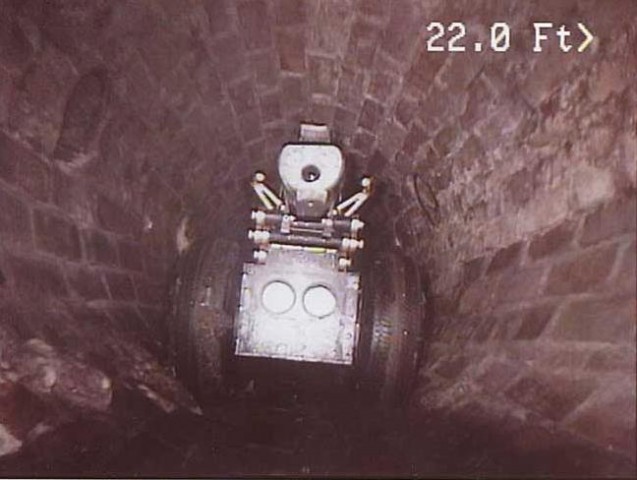EDITORIAL: Recreation? No deal. Sewer? No deal. Amalgamation?
A new regional sewer cost sharing agreement may be getting closer to reality as Trail, Warfield and Rossland have now agreed in principle upon the method of cost sharing to be used. An ultimate solution to the issue still seems far out on the horizon, however.
With parallel talks aimed at amalgamating the region happening simultaneously, one might ask just how Trail, Warfield and Rossland would be able to work together in an amalgamated city if they are having so many issues with the likes of sewer and recreation.
How to break down the cost sharing of the regional system has long been a major issue holding back any new agreement.
The general principle that all sides are pushing now is to have the cost apportionment based on flows or usage of the system. Last February a potential deal was worked out based on flow data from the two monitoring stations (at the top of Warfield and at the top of the Gulch). One of the deal breakers at that time, however, was that the flow data gathered was not accurate and would have led to an inaccurate cost sharing.
“We’ve said all along that the city of Rossland will agree on billing based on flows, but we don’t want to base costs on flows when flow data isn’t reliable and the pipes aren’t up to a reasonable standard. If that [is resolved] we’re more than willing to go ahead on flows,” said Mayor Greg Granstrom.
The latest issue thrown into the mix is that Rossland ( to help ensure that the flow data is accurate and to minimize infiltration of the system) is asking that the interceptor line running from the Gulch up to Rossland be repaired or replaced to a reasonable level.
“Rossland has always said once the sewer flows have been accurately determined and the regional district tells us they are very close to accommodating that that they will be on board, so we should be very close to that,” explained Trail Mayor Dieter Bogs. “Unfortunately in the last little while, Rossland has thrown another caveat into the mix and that the interceptor has to be to be adequate before they accept a new funding arrangement. I talked to the Regional District and, in their opinion, they say it doesn’t require any major cost to upgrade the line.”
According to the Regional District, however, the condition of the interceptor line has not yet been determined and will likely be some time before that work is fully completed by a professional engineering firm.
“We did a bunch of camera work on it but we haven’t done the follow up report yet,” explained Allan Stanley of the RDKB. “We do have the raw data so we didn’t see any significant inflows or outflows but from a very comprehensive engineering assessment you’d want to do on something like this we can’t say at this stage the condition of the line. We’d likely have that done by a professionally engineering organization sometime in 2011.”
That time-line for professionally assessing the pipeline now throws a wrench into the Regional District’s efforts to get the region’s liquid waste management plan back on track that has been stalled at Phase One for the past year and a half after the City of Trail initiated a service review on the regional sewer service.
With one issue stacking up on another, the region appears to be chasing its own tail in circles with each laying a certain level of blame on the other for not making forward progress on the issue.
Trail’s current position is that Rossland is holding up the Liquid Waste Management Plan (LWMP). Trail is refusing to move forward with the LWMP until they can come to a deal on the current sewer systems cost sharing arrangement. Rossland is saying they are ready to move on the cost sharing agreement as soon as the interceptor line is improved and accurate flows can be measured. On top of that, the Regional District is saying they won’t be able to professionally determine the condition of the pipe until sometime into 2011. All the while, the Regional District bylaw says the parties must continue on with the LWMP or potentially face fines of up to one million dollars a day as new sewage treatment legislation is expected to come into law in the New Year.
Boil it all down and you’ve got an imbroglio of sewage, pipes and a game of pass the blame going on within the region.
That said, some progress does seem to be happening. Trail has requested that the province intervene in the matter and help the region facilitate a new agreement. It would appear as though Trail has decided that locally an agreement can’t be worked out and they are looking to the province to help settle the issue.
Rossland doesn’t see the need for outside help at this stage as to them the issues are clear.
“I don’t believe the province will intervene,” said Granstrom. “What’s to intervene in? There are three communities that share a system. There’s also the possibility to bring in Beaver Valley to share in a regional system and all we need to do is proceed with Stage Two of the plan, and in that plan include the possibility of our neighbours joining in. Rossland says, ‘we’ll base our costs on flows and here you go’ and we’ve said this to Trail many times. It’s not Rossland that is holding things up.”
The next step in the game of who pays for our sewage is unknown at this stage. Perhaps it might just take the ever closer threat of hefty financial penalties to speed up the bargaining process? One has to wonder though with the continuing stalemates in the recreation and sewer issues if the parallel talk of regional amalgamation might well be putting the cart before the horse.
Can Rossland, Trail and Warfield realistically work out these issues on their own without provincial intervention? Will it take an amalgamated region to diffuse the two sided battle with Warfield in the middle? Or will an amalgamated super-city merely embroil these issues deeper in a situation with one government controlling the region, or streamline the decision making process?
























